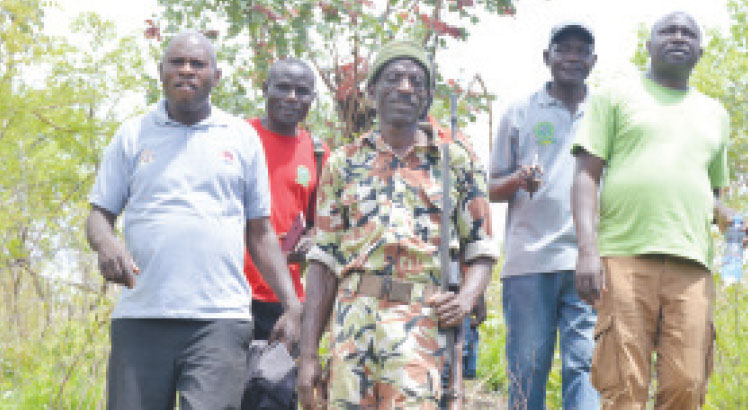I travelled to Lilongwe last weekend, leaving Blantyre on Friday afternoon and returning on Sunday morning. I used Kwezy coaches on both trips.
The outbound trip was without issues. I wish I could say the same thing about the return trip which, I am afraid, turned out to be a scary one.
When I bought my ticket in the afternoon of February 3, I was told the bus would leave at 7:30 the following morning and that I needed to be at the bus terminal by 7:00. This was all normal and I gladly obliged.
Getting to the bus terminal on Sunday morning, I noticed there were many people around the bus trying to buy tickets. I checked in, got onboard and made myself comfortable while waiting for those that were buying tickets to get on board. The process took longer than I had initially imagined.
As we were about to leave, the hostess went on the public address system to announce that a certain passenger, a minor, should disembark from the bus because his mother, who had just arrived and was standing outside the bus, had so instructed. The passenger in question had earphones on and did not hear the announcement. He, therefore, did not step out until the announcement was repeated several times. This caused a further delay to the departure. It was not until 7:45 that the bus started off.
The bus meandered through the worn out streets of the old town at normal speed because, despite being a Sunday, there was traffic in town, albeit way below what could be described as a gridlock. We stopped over at Six Miles roadblock to pick up one more passenger. When we hit the more open section of the M1 road outside town, an unexpected drama unfolded.
It was as if the M1 had morphed into a Formula One circuit, with our driver assuming the role of Michael Schumacher’s formidable adversary. Positioned in the foremost seat, behind the driver, I endeavoured to peer past his frame to discern our velocity, yet, the speedometer eluded my sight. Discerning from the sensation of our rapid motion and the procession of vehicles we effortlessly surpassed, we evidently maintained a speed of no less than 120 kph. Not a single vehicle, regardless of size, dared to overtake us that morning; instead, we overtook countless others, their number too great for me to tally.
Having navigated the roads of Malawi at a wide range of speeds since 1990, I can attest that adhering to the prescribed speed limits (which our driver did not bother to do) rarely results in overtaking more than a handful of vehicles. Only lumbering trucks, burdened with cargo and creeping along, proved susceptible to being swiftly surpassed.
What made it even more scary was the condition of the road. Perhaps as a result of frequent travel, the driver appeared to have so mapped out the entire route as to know which sections had potholes. Potholes notwithstanding, his enthusiasm to race against time remained unabated. More than once, he switched to the other lane as he tried to avoid potholes, but did so at his ferocious Formula One speed. The long stretch between the two junctions into Dedza is a zone in which motorists should not exceed 50 kph, but it was not so with our driver.
When we stopped over at Ntcheu, I decided to quiz the hostess while the driver was outside using the washroom.
“Why is your driver going so fast?” I enquired.
“Akufuna akokere, [he needs to redeem the time]”, responded the hostess, in Chichewa. “Tinanyamuka mochedwa koma tikuyenera tikafike 12 koloko kuti tikabwelerenso ikamakwana 1 koloko [We lost time because we started off late, yet we need to get to Blantyre by 12:00 and return to Lilongwe at 1:00 pm].”
I thought she would communicate my sentiments to the driver. She did not. As we approached Salima turn-off, our driver decided to overtake a chain of vehicles, in the process forcing oncoming traffic to veer off the road. That was totally unnecessary.
The explanation I got from the hostess was hopelessly wanting. Getting to Blantyre by 12 may indeed have been desirable, but under the circumstances, the possibility of even getting there in one piece was beginning to look farfetched.
When we were about to reach the bus terminal at Chichiri, the hostess said a prayer to thank God for a safe trip. Many passengers mumbled through the Amen, their hearts in their mouths.
The post Leave motor racing to non-passenger vehicles first appeared on The Nation Online.
The post Leave motor racing to non-passenger vehicles appeared first on The Nation Online.
 Moni Malawi
Moni Malawi 
